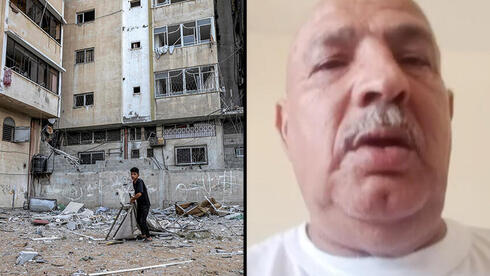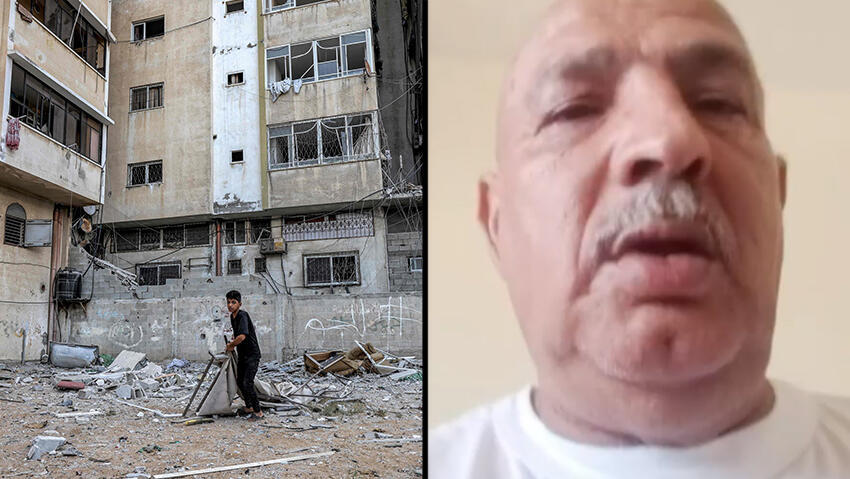
The situation in the Gaza Strip is getting worse, and many residents are in a difficult humanitarian situation, Gazan journalist Sami Obeid tells Ynet. “Most of those who live in Rafah are in tents. I see the tremendous suffering. There is no aid, the prices are very high. A kilogram of sugar is 40 shekels, a liter of milk is 50 shekels. There are no goods and no money. A pack of cigarettes costs 120 shekels.”
Do you receive aid from the humanitarian trucks?
“How will they distribute it? There are many thieves. There is no police to control things. The residents are hungry. People take a bag of food and sell it to have some money. There is no police and no one to really deliver it. We are in a dilemma. The situation is difficult. You told us to move to Rafah. We have moved. Now you enter Rafah to fight, so return us to northern Gaza. What about us? We live in this hole. No money, no life.”
Regarding the massacre on October 7, Obeid says that, despite the claims in Israel that “there are no innocents” in Gaza, most of the residents of the Gaza Strip were not involved in it. “We didn’t do October 7. Hamas did it. They did it and were wrong. Tens of thousands of dead, 100,000 wounded. How long will this last? Open the sea for us. Let us go. Hamas controls Gaza. If they come to my house, what can I do? What can I tell them? No one in Rafah will say a word about Hamas. They are afraid of Hamas, they control the area,” he said.
So what will happen to you?
“Find us somewhere to go. Get us a country that will accept us. You don’t want us, find us a place. Load us on ships.”
Netanyahu: The IDF will soon operate in Rafah
On Wednesday, Prime Minister Benjamin Netanyahu said at a press conference that the IDF will soon operate in Rafah and the other two refugee camps in the center of the Gaza Strip, a few hours after the IDF killed a high-ranking member of the Hamas police force in Rafah. Arab media reported that a senior commander in the Hamas police, Majdi Abdel-Al, was killed in an airstrike on his car in Rafah. Abdel-Al was responsible for the stability of the terrorist organization’s rule in the Rafah area, raids on drug deals on the Egyptian border, training, investigations and strengthening the police forces in the area.
About 250,000 residents lived in the city near the Egyptian border before the outbreak of the war – and now, according to the United Nations, about 1.3 million people live there, after hundreds of thousands moved there when the IDF called for residents to move to the south of the Gaza Strip – following the intense fighting in the north at the beginning of the ground maneuver.
Some of the displaced people crowd in apartments, and some find shelter in tents in parks, stadiums or squares. Noha Almadun, 47, from Beit Lahia in the northern Gaza Strip, came with her family to stay with relatives, in a house where 40 people currently live. “These are the worst months of our lives,” she told the AFP news agency.
According to the Gaza Health Ministry, which is run by Hamas, more than 27,000 people were killed in the Strip since the outbreak of the war on October 7. According to the UN, about 1.7 million people were displaced from their homes, out of a population of 2.4 million people.







